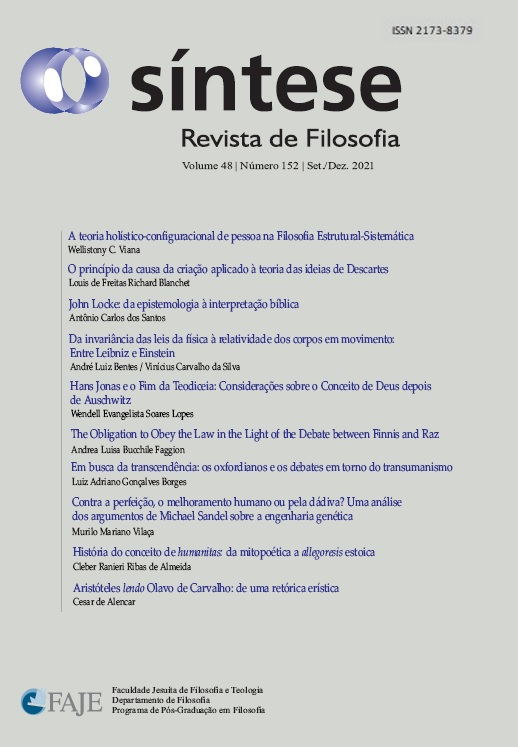THE PRINCIPLE OF THE CAUSE OF CREATION APPLIED TO DESCARTES’ THEORY OF IDEAS
DOI:
https://doi.org/10.20911/21769389v48n152p625/2021Abstract
The interpretation presented in this article argues that any ideas which content is the notion of extension, even the most abstract one, cannot exist in pure mind. They depend on the union between body and mind. In the Cartesian theory of idea, the ontological aspect is central to this understanding. This theory is presented in Descartes’ Third Meditation proof of God’s existence. According to that proof, all ideas have a cause that makes them exist as ideas. The analysis of the criteria that allows to decide if one thing is the cause of the existence of an idea will make clear what kind of ideas can be created by pure thought or need the body to exist. We will argue that the cause must have the same ontological nature as the effect. If this holds true for the Cartesian system, the ideas whose content is linked to the extended substance, such as sensations, geometrical ideas or even the general idea of extension, will need the concurrence of the extended substance to exist.


















